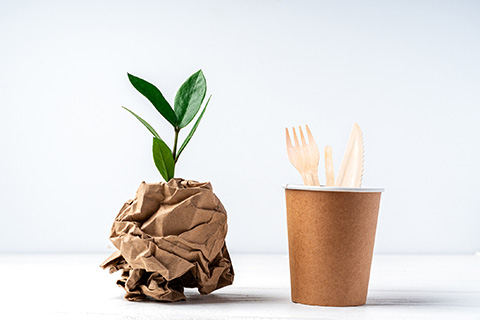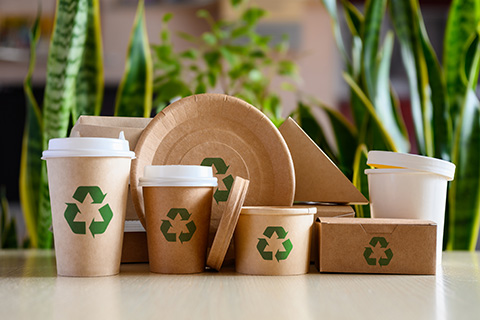For years, environmental issues have been gaining relevance in society, generating a growing concern for finding sustainable solutions.
In this context, a recent study presented by Bruno Armengot, researcher of the ICT research group against climate change of the UPV, and Lorenzo Toldrá, CEO of the company GEMINIS TOOLS, reveals that wooden packaging is the most sustainable and environmentally friendly. This finding has aroused the interest of both professional students and those who are passionate about the study of the environment.
The research focuses on analyzing the entire life cycle of wooden packaging, from production to disposal, and compares its environmental impact with that of paperboard packaging. The study, especially focused on packaging used in the fruit and vegetable industry, has revealed that wood packaging has a lower impact in all the categories studied, especially in the reduction of greenhouse gas emissions, pollution, ecotoxicity, and food safety.
The advantages of wood packaging on the environment
One of the highlights of this type of packaging is its virtually zero water footprint in manufacturing, which positions it as a sustainable and environmentally friendly choice. In addition, its light weight and good capacity make it an advantageous option in terms of logistics. In addition, wood packaging contributes to the cascading use of natural forest resources, as well as its high recycling and recovery rate. These characteristics mean that wood packaging is considered a central element in the bio-circular economy, establishing it as one of the pillars of the Pacto Verde Europeo (European Green Pact) in the quest to decarbonize the packaging and logistics sector.

Another important point is the relationship between wood packaging and combating climate change. Wood, being a natural and renewable material, has the capacity to sequester carbon throughout its life cycle. In fact, it is estimated that one cubic meter of wood retains about one ton of CO2 and emits 700 kg of oxygen. In addition, it should be noted that the wood packaging sector promotes sustainable forest management using forests, which helps to prevent large forest fires, the main emitters of CO2 worldwide.
Life cycle analysis is considered a key scientific methodology in the transition to a circular bioeconomy in this sector. This analysis shows how the wood packaging sector contributes to compliance with European sustainability policies and regulations, aligning with the European Forest Strategy 2030.
Join the fight for environmental protection
Are you passionate about the environment and want to make a significant impact on our planet? The Master in Environmental Management and Audits offered by the Universidad Internacional Iberoamericana (International Iberoamerican University, UNIB) is the perfect opportunity to expand your knowledge and skills in this crucial field.
Upon completion of the master’s degree, you will have a set of valuable skills that are in high demand in today’s job market. The growing demand for sustainability professionals in various sectors ensures a wide variety of opportunities for graduates.
Join us in shaping a greener, more sustainable future. Together, let us create a world in which progress is harmoniously balanced with the well-being of our planet.
Source: Wooden packaging proves to be the most sustainable and environmentally friendly packaging

